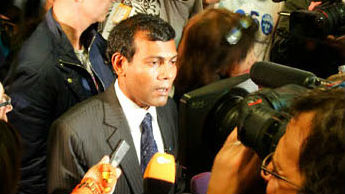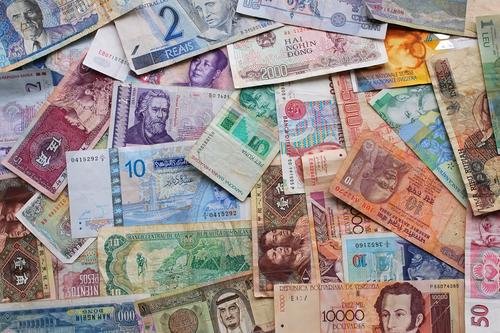UK Prime Minister, David Cameron forgets his new ‘best friend’

Eighteen months ago, I interviewed President Mohamed Nasheed, the Maldives first ever democratically elected leader, for al Jazeera TV in the capital, Male. Then, as now, this small Indian Ocean island nation, stood on the edge of a constitutional crisis. “I could do what the old dictator, Gayoom, would have done, and put these people who are plotting to overthrow me under house arrest”, the man his many supporters call ‘Anni’ told me. “But then that would completely defeat the object of the democratic revolution we have won”.
The previous time I had seen Nasheed was at the Tribune office in Hampstead in the mid 1990s, when accompanied by our mutual school friend, David Hardingham, he asked what we could do to try and get the Labour Government to take action against the Gayoom dictatorship. The answer then, sadly, was not much. Just as it is today, with the Prime Minister, David Cameron who recently alluded to Nasheed as “my new great friend”, but who failed miserably to speak up for his new great friend in Parliament last week as news arrived of the coup that finally toppled Nasheed.
The Maldivian Spring pre-dates the Arab Spring by at last four years, and in that time, Nasheed has become a highly respected international Statesman, making global warming his crusade, while at home bearing down on the cronyism and corruption that characterised the years of dictatorship. Known in some quarters as the ‘Mandela of the Indian Ocean’, Nasheed’s is one of those rare political figures who commands a very real affection.
Now Nasheed and his Government have been swept away in a violent coup organised by the Gayoom clan in an unholy alliance of tourist resort owners and hard line Islamists. YouTube video of leaders of the Maldivian Democratic Party beaten up and hospitalised have beamed around the World, as has footage of Nasheed and his wife being dragged from their home by paramilitary goons. They were temporarily detained, but outside pressure has ensured their release – for now.
Nasheed was forced to step down as President by the threat of violence to him and his family, while the Gayoom family did a deal with the Maldivian Vice President, Dr Mohammed Waheed. Any pretence that this unconstitutional removal of the elected President – and his replacement by a man many Maldivians believe to be useful stooge – was anything other than a coup by the old firm, was undone by Sunday’s announcement by Waheed of a new Cabinet. Its membership is largely peopled by ex Gayoom era Ministers.
Many of these Ministers were in power when Nasheed and his supporters were routinely arrested, beaten up, tortured and thrown into jail. The fear is that this fate awaits the elected President and many others once the spotlight moves away from the islands.
Sadly, the American reaction has been to call for an ‘internal investigation’ into what has happened, while Foreign Secretary William Hague weighed in with this vacuous delusion; “We hope”, he said “that the new leadership will demonstrate its respect for the law”. The European Union’s Special Representative, Bernard Savage went one better with; “At this stage, given our information, we would not say that there has been any legal infringement of constitutional norms.”
Fortunately on Sunday evening, the Commonwealth Ministerial Action Group concluded its emergency meeting by expressing “solidarity with the Maldivian people to select a Government through democratic means”. The Commonwealth is also intending to send a top level Ministerial inquiry team to the islands. Some were hoping that the Commonwealth would go further and threaten to expel the Maldives – as it did Fiji, following a military coup there – if Nasheed is not allowed to return to office. But the Commonwealth’s support for democracy – and by extension early elections – does at least put the reaction of most of the rest of the international community – including Britain, to shame.
*Mark Seddon is writing the biography of President Mohamed Nasheed of the Maldives





